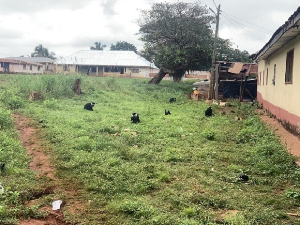The Easiest Steps to a Residence Permit in Spain

Spain, with its vibrant culture, stunning landscapes, and agreeable climate, remains a top destination for those seeking a new life abroad. For non-European Union citizens, securing a residence permit is the first crucial step. While the process requires diligence, some paths are more accessible than others. Let’s explore the easiest routes and clear up a common misconception about a “3-year stay in one apartment.”
The Reality of Spanish Residency: It’s Not Just About an Address
It’s important to clarify from the outset: simply living in one apartment for three years, while contributing to your physical presence, does not automatically grant you a Spanish residence permit. Spanish residency is always tied to a visa that allows you to legally stay in the country for a prolonged period, followed by an application for a residence permit once you are in Spain. The path to residency is about proving your legal basis for being in Spain and demonstrating you meet specific criteria, not merely the duration of your tenancy.
The “Easiest” Paths to a Spanish Residence Permit for Non-EU Citizens
The term “easiest” is subjective and depends on your individual circumstances, particularly your financial situation and your intention for living in Spain. However, some visa types are generally considered more straightforward than others due to their requirements.
1. The Non-Lucrative Visa (NLV): For Those with Passive Income
Often touted as one of the most accessible routes, the Non-Lucrative Visa is ideal for individuals who can demonstrate sufficient independent financial means to live in Spain without working.
Why it’s considered “easy”: It doesn’t require a job offer, investment, or enrollment in a specific program. The primary hurdle is proving financial solvency.
Key Steps & Requirements:
* Financial Proof: This is the cornerstone. You must prove you have sufficient funds to support yourself and any dependents for at least a year. For 2025, this generally means at least €2,400 per month (400% of the IPREM) for the main applicant, plus additional amounts for dependents (e.g., €600 per month per dependent). This can come from savings, pensions, rental income, dividends, etc. Bank statements (usually for the last 6-12 months) are essential.
* Private Health Insurance: You must secure comprehensive private health insurance from a company authorized to operate in Spain, covering your entire stay without co-payments or deductibles.
* Clean Criminal Record: A criminal record certificate from your home country (and any other countries you’ve resided in for the past five years) is required, often with an apostille and sworn translation.
* Medical Certificate: A doctor’s certificate stating you do not suffer from any diseases that could endanger public health.
* Passport: Valid for at least one year with at least two blank pages.
* Application at Consulate: You apply for the Non-Lucrative Visa at the Spanish Consulate in your country of residence before moving to Spain.
* TIE Application in Spain: Once your NLV is approved and you arrive in Spain, you’ll apply for your TIE (Tarjeta de Identidad de Extranjero – Foreigner’s Identity Card) at the local Foreigners’ Office or police station within a specific timeframe. This is your actual residence permit.
Important Note: The NLV strictly prohibits working in Spain. If you intend to work, this is not the visa for you.
2. The Digital Nomad Visa: For Remote Workers
Spain’s relatively new Digital Nomad Visa is designed for individuals who can work remotely for companies or clients outside of Spain. This has quickly become a popular and streamlined option.
Why it’s considered “easy”: It acknowledges the modern workforce and offers a clear path for those with remote income.
Key Steps & Requirements:
* Remote Work Proof: You must demonstrate that you are employed by a company outside of Spain or work as a freelancer for non-Spanish clients. If you work for Spanish companies, it generally cannot exceed 20% of your total income.
* Employment Duration: Proof of at least three months of employment with your current company (or client relationships for freelancers) and a contract for at least one year.
* Financial Sufficiency: You need to show sufficient income, generally around €2,400 per month for the main applicant, plus additional amounts for dependents.
* Education/Experience: An undergraduate or postgraduate degree, OR at least three years of relevant professional experience.
* Private Health Insurance: Similar to the NLV, comprehensive private health insurance is mandatory.
* Clean Criminal Record: As with other visas.
* Application: You can apply either at a Spanish Consulate in your home country or directly from Spain (if you are already legally in Spain on another visa).
* TIE Application: As with the NLV, you’ll apply for your TIE once approved.
3. The Golden Visa: For Investors (If You Have the Funds)
While requiring a significant financial outlay, the Golden Visa is arguably the most straightforward in terms of initial requirements, as it’s primarily an investment-based residency.
Why it’s considered “easy”: It bypasses many of the traditional visa requirements if you meet the investment threshold.
Key Steps & Requirements:
* Qualifying Investment:
* Real Estate: Purchase of property (or properties) worth at least €500,000.
* Capital Investment: At least €1 million in shares of Spanish companies or bank deposits in Spain.
* Government Bonds: At least €2 million in Spanish government bonds.
* Clean Criminal Record, Health Insurance, Sufficient Funds: Standard requirements.
* Application: Can be applied for directly from Spain, even if you entered on a tourist visa.
* Benefits: Offers significant flexibility, including allowing the investor and their family to work in Spain and requiring minimal physical presence in Spain for renewal (though more is needed for long-term residency/citizenship).
General Steps for All Residence Permit Applications
Regardless of the visa type, the general process for obtaining your Spanish residence permit (TIE) once your visa is approved and you are in Spain follows these broad steps:
* Obtain Your NIE (Número de Identificación de Extranjero): This foreigner’s identification number is essential for almost all official transactions in Spain. You can often get this at the consulate when applying for your visa, or at a police station in Spain.
* Register at the Padrón (Empadronamiento): This is a municipal registration that proves you live at a specific address in Spain. It’s done at your local town hall (Ayuntamiento) and is required for many administrative procedures.
* Gather Required Documents: This will include your valid passport, your visa approval, proof of your Padrón registration, passport-sized photos, and proof of payment for the TIE fee (Modelo 790, Código 012).
* Schedule a Fingerprinting Appointment: You’ll need an appointment at the local Foreigners’ Office (Oficina de Extranjería) or National Police station to provide your fingerprints.
* Collect Your TIE: After your appointment, you’ll be notified when your TIE card is ready for collection.
Moving Towards Permanent Residency: The 5-Year Mark
Once you have held temporary residence permits (like those from the NLV, Digital Nomad Visa, or Golden Visa) legally and continuously for five years, you can apply for long-term or permanent residency. This grants you the right to reside in Spain indefinitely, with fewer renewal formalities. During these five years, there are limits on how long you can be outside of Spain (generally, no more than 6 continuous months and no more than 10 months total in the five-year period, with some exceptions for work-related travel).
Conclusion
While the dream of living in Spain is attainable, it’s crucial to approach the residence permit process with accurate information and thorough preparation. Focus on identifying the visa category that best suits your circumstances, meticulously gather all required documentation, and be prepared for administrative procedures. With the right approach, your Spanish adventure can become a beautiful reality, whether you’re enjoying the bustling city life or the tranquil pace of a coastal town.
Source: Thepressradio.com





